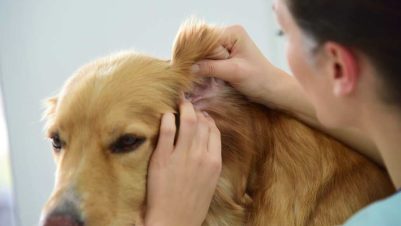WHAT HAS GONE WRONG WITH THE MEDICAL PROFESSION? This is not my question, you understand, but one posed to me last week by a consultant at our local hospital with whom I happened to be having dinner.
He wasn’t talking about the junior doctors’ strike as it happens but something that was far more foundational to his mind. Doctors, in his opinion, have forgotten the key elements of what it is to be a medical practitioner. And I wonder if we need reminding of these too as vets.
Humility was the first in his trio of central attributes. Humility followed interestingly by curiosity. And his third characteristic was reflectivity. Looking around at the vets I know, I’m not sure whether a lack of humility is a big problem, though I can see why my friend thought it might be among more senior doctors.
One of the students I was working with when I did my Masters in Education was evaluating the power play between consultants and their juniors in hospital environments and how this influenced their teaching. The consultant-registrar interaction was often not one which fostered a happy and constructive learning environment. In the past I must admit to seeing similar issues of hierarchy between residents, interns and students in both of the vet schools I’ve worked in. But then I guess in any environment the same sort of interactions can occur – that’s part of being human perhaps.
But actually in the long term the people who count aren’t those who push themselves to the front of the queue, those who want to use their status for their own gain. “Blessed are the meek,” said Jesus, and while he wasn’t directing that towards hospital consultants when he said it, I think it’s probably relevant! I wonder if becoming a profession with more female members than male will gently nudge us towards greater humility.
The X chromosome is a strange thing, isn’t it? It seems that having two of them tends to give a character that says sorry even when it (she) doesn’t need to. If I accidentally bump into a woman on the street she is likely to say sorry, even though it wasn’t her fault at all. If I do the same to a bloke, I have the feeling he will say “watch where you’re going!” in a much more aggressive manner.
Now it has to be said I have no direct evidence for this. Maybe that would be an interesting little project to do – though getting ethical clearance might be a bit tricky! In fact we do have publications in refereed journals on gender differences in saying sorry, but not using quite such a potentially dangerous methodology!
Sorry statistics
Schumann and Ross in 2010 asked people to keep a record of when they apologised, when they were apologised to, and when they thought they should have been offered an apology but were not. Women apologised more than men did to be sure, but also recorded more occasions when they felt an apology should have been offered.
The researchers then asked their participants to rate imagined situations as to whether apologies should be offered. Women were more likely than men to consider that what they termed an offensive situation required an apology.
True, this only involved 66 university students, 33 men and 33 women, so not a huge sample and not a widely varied one, but still a valuable study and one that seems to stand on its own in evaluating what is a key feature of relationships be they personal or business.
In the operating theatre I tell the students – mostly female these days – that the two key words not to say are “sorry” or “oops” during an operation they are performing with me, but perhaps that’s because I’m male! If something does go wrong, actually saying sorry to the owner is crucial, not passing the buck or being economical with the truth. Humility is key.
But next on my medical colleague’s trio of essentials was curiosity. The final years have just about finished six years of the vet course here in Cambridge, and talking to them you can quite understand that they are exhausted.
But more than that, six years of pumping huge amounts of information in and then expecting them to regurgitate it in exams seems to have exhausted not just their physical capacities but also in many cases their zest for pushing forward the boundaries of veterinary science.
Vet students at any university start off as the crème de la crème of A level students and it worries me that we somehow knock the intellectual stuffing out of many of them over their university career, which should excite and enthuse them more and more as they progress through it.
To tell the truth, give them a break over the summer and many may regain the curiosity that took them into their veterinary career in the first place, but a couple of years of spays, castrates and vaccinations might not do enough to rekindle the curiosity that my medical colleague worries is beaten out of medical graduates as well. And perhaps it’s his final attribute – reflectivity is key in keeping practitioners, be they medical or veterinary, on the right track with both humility and curiosity.
Mirror, mirror
This is by no means a new idea. Back in 1984 David Schon, a social scientist at Massachusetts Institute of Technology, wrote The Reflective Practitioner in which he argued that professionals from architects to psychotherapists solve problems best not by relying on what they learnt at college but rather by improvisation that comes from continually improvising, reflecting on what they have done and revising their practice.
While we now get students to write reflective pieces on the practice they have seen in their EMS, I’m not sure we really teach them enough about being reflective in their day-to-day work.
Part of Schon’s thesis is that the good professional does this naturally, but without a doubt this reflective practice can be taught as well – best taught not from a textbook though, but by seeing it in action. When you have a vet student seeing EMS with you this summer, why not talk to them about how you are being naturally reflective in how you work?
If all is well, reflectivity can be easy, but often forgotten. When things haven’t gone quite right that reflection will require humility. And when something unusual and unexpected turns up it will, with any luck, stimulate curiosity.
Good luck with juggling those three balls in your practice over the summer!







